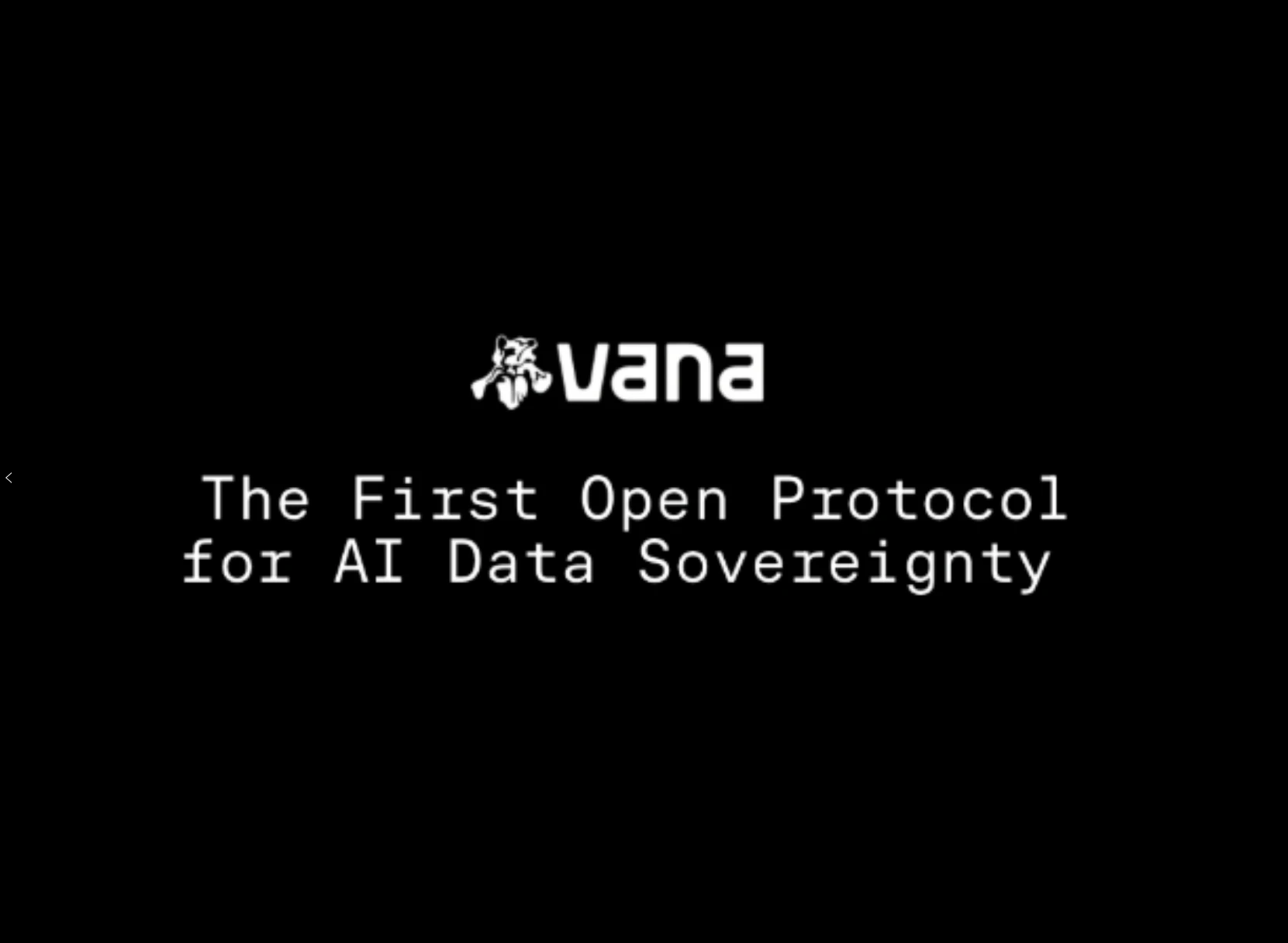
Vana, a decentralized user-owned data network, announced the official launch of its mainnet and native token VANA last night. This launch not only breaks down the data barriers that limit the development of AI, but also enables privacy protection and enables users to share the value created by their data.
Developed by Open Data Labs , a San Francisco-based research and technology company with roots in the MIT Media Lab, the Vana Network is an EVM-compatible blockchain that allows users to use their data for AI model training while maintaining ownership and control of their personal data through privacy-preserving technology.
Before the official launch of the mainnet, Vana achieved good results in the testnet stage. During the testnet, about 1.7 million transactions were processed every day, and more than 1.3 million users contributed more than 6.5 million data points to DataDAO. The success of the testnet proves that programmable data ownership is not only possible, but also crucial at this critical moment in the development of AI. Anna Kazlauskas, CEO of Open Data Labs and founder of Vana, said:
Today’s mainnet launch marks a fundamental shift in how data is owned and monetized in the AI era. Users have always legally owned their data, and while most users don’t even realize their data is legally theirs, platforms capture all the economic value. Vana lays the foundation for a new data economy, one in which users can benefit from the AI models they help create, and developers can finally access the cross-platform datasets needed to build truly powerful AI. Property rights are fundamental to driving modern economic prosperity, and in today’s digital economy, programmable data rights will be the cornerstone of the next generation of AI development.
The main functions of Vana Mainnet include:
Trustless verification: Data verification is achieved through secure data access and trusted execution nodes;
Fine-grained permission control: giving users full control over the use of their data;
On-chain data traceability: Track how user-contributed data is used;
Data Liquidity Pools (DLPs): Supporting collective sharing, governance, and monetization of data through DataDAO;
Proof of Contribution Mechanism: Ensure fair reward distribution based on data quality;
Stake VANA: Stake VANA to DataDAO through Data Hub.
Through the network’s proof-of-contribution system, users can earn rewards by contributing data to DataDAO, earning tokens for specific datasets that give users governance rights while maintaining control over data usage. These data tokens can be redeemed for VANA, the network’s native currency. And DataDAOs will also receive DataDAO rewards. In addition to data contributions, users can earn additional tokens by running nodes, validating transactions, and staking to DataDAO.
The total supply of VANA tokens is 120 million and will serve as the foundation of the network’s economic model, supporting the following features:
Governance of network parameters and data usage;
Stake to secure the network and verify data contributions;
Encourage data contributors to submit high-quality data;
Revenue sharing from AI model development and data usage.
DataDAOs built on Vana include the DNA DAO, which aims to address privacy concerns around genetic data ownership, and an expansion of the successful Reddit Data DAO, which has demonstrated the potential of community-owned data pools.
The mainnet launch comes at a critical time, as AI development faces increasing data scarcity and users seek greater control over their digital footprint. Vana’s solution enables individuals to participate in and benefit from the AI economy while maintaining sovereignty over their own data.
Art Abal, CEO of Vana Foundation, said: When AI encounters a data barrier and more and more platforms monetize user data without sharing any of the benefits with users, users should have the right to have a seat at the table in the future of AI. The way private data is bought and sold in Web2 is broken. Our data is extracted and held ransom by a few platforms and data brokers. They decide the value of our data and the technology created from it. But this will not continue. This is just the beginning. In the future, we can decide the value of data and decide the technology created by it. This is the data revolution.
About Vana
Vana is the first decentralized user-owned data network, unlocking data as a new digital asset class. The Vana network consists of an EVM-compatible blockchain, a secure personal server environment, and a set of native contracts designed to enable trustless, secure exchange of user-owned data through DataDAO. The network enables users to participate in the growing AI economy by sharing their data with others and earning rewards for their contributions while maintaining control of their data.
About Vana Foundation
The Vana Foundation is a non-profit organization responsible for ensuring the sustainability and growth of the Vana ecosystem.
About Open Data Labs
Open Data Labs is a research company focused on accelerating the development of technologies for user-owned data. They created the Vana Protocol and provide ongoing core development services to the Vana Foundation.










